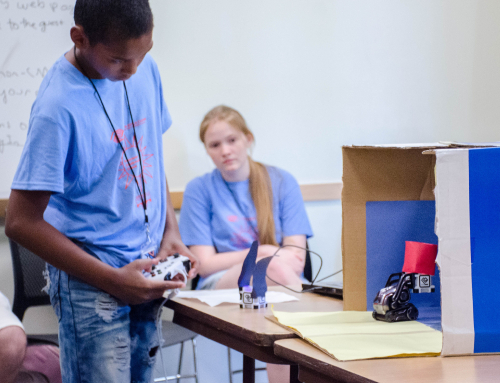By: Roozbeh Aliabadi
I graduated from high school on the turn of the millennium and since then, our world, how we live and work has seen enormous changes. The most striking impact is the evolution of technology and its advancement in fields like artificial intelligence.
At ReadyAI, I witness every day how this fast development and changing nature of living and working poses a major question for teachers around the world of how best to teach and prepare students that will soon be entering this fast-changing world.
Many studies reveal that over 65% of primary school children beginning their education today, will be in occupations that have not yet been created. This is very serious. It means every school faces the important responsibility of predicting and preparing students with the future skills and knowledge for jobs that don’t even currently exist.
At first, it looks to be a very challenging role for schools, but it also presents tremendous possibilities for the broader K-12 education sector to adapt its teaching and learning methods and embrace the opportunity and to rethink and rebalance the emphasis between hard skills and soft skills, or what is currently being taught in classrooms and what should be taught in classrooms.
For many job functions of tomorrow, qualifications will be a necessary requirement, but we must prepare for a future where experience and adaptable skills may ultimately play a bigger part. It is true that businesses will continue to hire individuals with hard or technical skills, but they will also look for those who are creative, independent, have a wide range of experience, can manage resources, understand what people are looking for, collaborate and possess exceptional interpersonal skills.
ReadyAI was founded with a belief that AI learning through project-based learning for every student in every classroom is a MUST, because it is how schools should future-proof students for the world they will be living and working in, ensuring they are flexible, adaptable and of having their own impact on business, society, and our world.
Our approach in project-based learning and AI education is as much about learning big ideas in AI as it is about “soft skills,” which we think will be the difference between those students that thrive in tomorrow’s world and those that don’t.
For example, ReadyAI curriculum centers around teaching 5 Big ideas in AI at K-12: (i.e., Computers perceive the world using sensors. Agents maintain models/representations of the world and use them for reasoning. Computers can learn from data.) But it also focuses on developing students skills, craft and creative problem-solving, this offers the chance to have a greater understanding of the impact their work has on the world and how it will be consumed by society through an amazing and fun event called World Artificial Intelligence Competition for Youth or WAICY.
It is increasingly likely that today’s students will have four or even five different careers in their lifetime, reinventing themselves for different sectors and roles. By blending technical and soft skills, students will be able to adapt and grow in the future.
At ReadyAI we do much more than teaching students AI concepts such as object manipulation, voice generation, visual recognition, etc. We aim to make every student future-ready with non-technical skills through creative and collaborative problem solving which can be seen at WAICY, as it aims to bring AI to students all around the world by sparking creative, innovative, and artistic demonstrations of the technology that can make a change to the future.
We are witnessing an enormous reskilling revolution around the world. I believe valuing human capital not only helps to equip students with the knowledge and skills to respond to this shift, but it also empowers them to take part in creating a more equal, inclusive and sustainable world.
Our core mission at ReadyAI or WAICY is to invest in developing the talent and potential of all students, that can be the bridge we need to move to inclusive, sustainable growth that leverages technology to create opportunities for all. We believe investing in every student can transform them from passive spectators of technology disruption to active participants of positive change in their local, regional and global communities.





